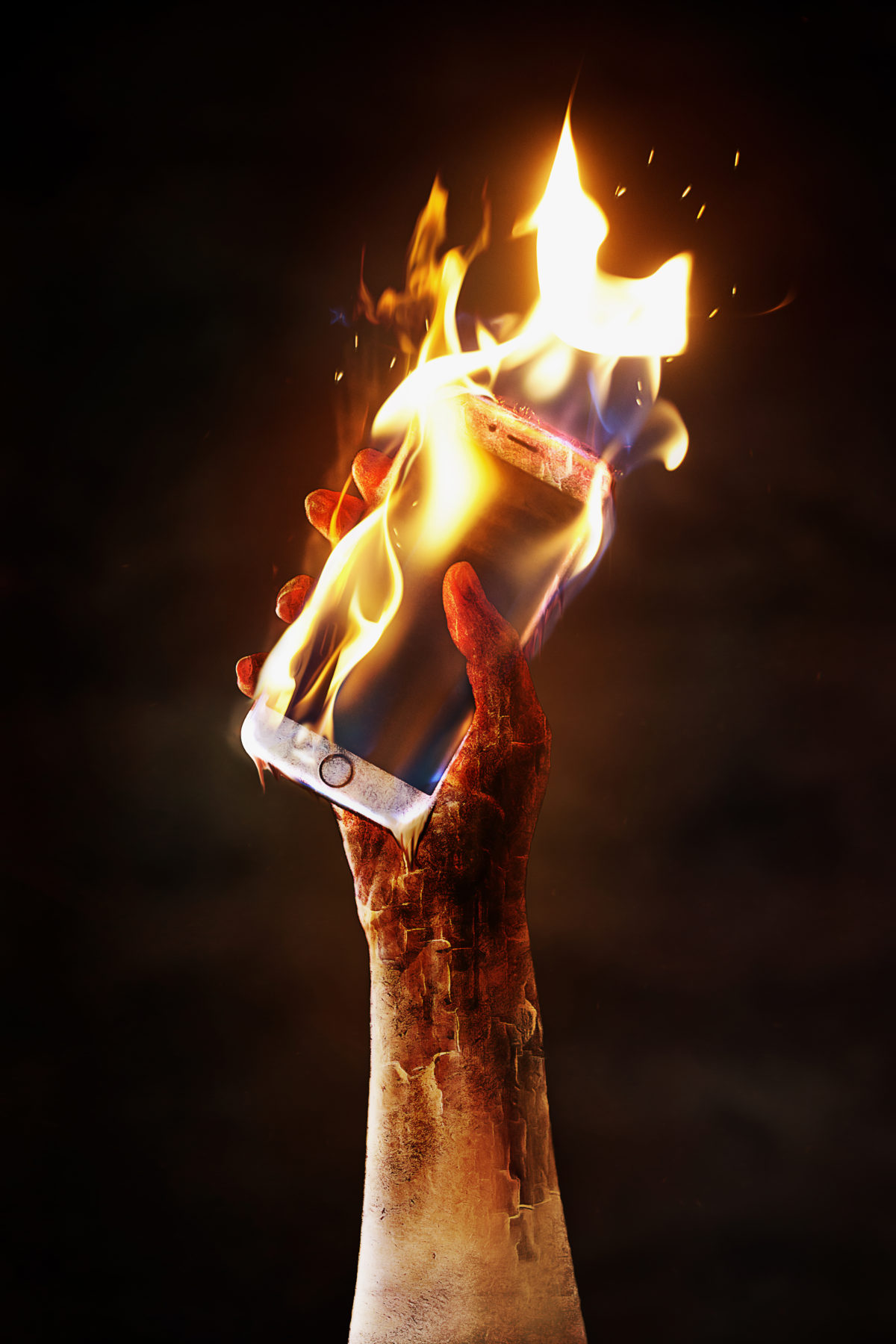Snap Chat, Twitter, Facebook: Social Media and the Importance of Cell Phone Forensics
Lee Neubecker and Debbie Reynolds, the Data Diva, discuss the role of law enforcement in capturing social media posts when trying to thwart the bad guys coordinating a riot or the more recent looting incidents in Chicago. During this difficult time in our nation, what is the role that cell phone forensics should take? Did you know that Apple phones have the ability to automatically shut down when stolen and have a beacon that will detect the location of the phone making it easy for law enforcement to come knocking on the thief’s door? Check out this video to learn more about the role of social media and cell phone forensics.
Transcripts of Video Follows
Lee Neubecker (LN): Hi, it’s Lee Neubecker, and I have Debbie Reynolds back on the show, Debbie thanks for being on remotely.
Debbie Reynolds (DR): Thank you for having me.
LN: So I asked you to come on so that we could talk a little bit about some of the recent lootings that have happened in Chicago and other areas across the country. And what could be happening, as it relates to cell phone forensics and how law enforcement can be using that to get to the bottom of how these coordinated attacks are being planned and who might be involved.
DR: Most of what I know about this is basically what you told me so, why don’t you just sort of share what your experience has been so far in the current environment, and then we can talk from there?
LN: Sure. Well, right now, I know that some of the looters that were apprehended had cell phones on them. We don’t know exactly how the information is being used by law enforcement, but technically, an example of things that could happen could include, doing forensics on the cell phone, identifying Snapchat handles they have communicated with, looking at text messages, looking for Twitter accounts and postings. And potentially, what I saw happening during the last week, at least in one instance, there was a post made to Twitter by a user that made a reference to doing a gig at Urban Outfitters on the West Side, and roughly a few hours after, that post went out on Twitter, referencing Urban Outfitters, Nike’s, Liquor and other things. Around four hours after that, looting that went on at that store, so that handle that posted and anyone else that reacted to that post could certainly have been alerted to the potential for mass looting in a coordinated way via social media.
DR: Yeah, I think even though the police do have capabilities to do that type of tracking and tracing, they they do heat maps of certain things. The problem is that these incidents, if they are coordinated, they happen pretty quickly so it’s sort of hard for them to kind of preempt it. But as you said, always, they have capabilities, right? To do anything with like cell phones that they capture, but they also have capabilities to do things like geofencing about who was in the area at certain time. So, a lot of what they’re doing is not necessarily preemptive or pre-crime is more of, if something is happening or has happened, they can go back and try to backtrack or trace or… If there are people on the scene they can apprehend whoever is there that’s doing whatever and they sort of build it out from there, right?
LN: Yeah, but just the other day, someone was captured and apprehended in… They got caught because they were posting their raid via social media, and they had a live view of them going to bomb, they were threatening to bomb the place and looted, taking cash registers and the stuff was, this someone that was not from Chicago, I think from downstate, somewhere that came in and came in with a goal to create problems and had a past history of that, but the person had the audacity to post it to Facebook, and the FBI just busted them and they’re indicted now.
DR: I don’t know why people share such things on social media. Because yeah, they do track and trace that. But, a lot of the things especially as I saw, it seemed like a lot of stores that have things like mobile phones have been attacked. And as you know those things are pretty easy to trace back. So I don’t know how far people–
LN: Apple had LoJack, in all their phones at the retail store, and so people who took those phones likely those phones likely got located but-
DR: Oh yeah, definately.
LN: I don’t know that that’s happening at the the cheap cell phone stores, the burner phones.
DR: Well, yeah, those are… No, I mean, they probably… If anything, obviously may have serial numbers and stuff like that but, once you… Whether it’s broken, or people change sims or whatever, it’s harder to track that stuff down. But yeah, the Apple phones, yes. They wouldn’t have very much problem. I think as I heard, I read that what Apple had done is for all the phones that were stolen from them, they were able to lock those down. And then it had a screen on there so that you actually couldn’t use it. So, that’s what I heard was happening with Apple.
LN: Yeah, well, they also have the ability to beacon out and send GPS location so-
DR: Oh, absolutely.
LN: People who are buying stolen Apple phones might find someone knocking on their door, law enforcement.
DR: Yeah, it’s probably not a good idea to buy one off the street at this point. So yeah.
LN: Yeah. Well, any thoughts on your concerns if the privacy issues that might relate to mere surveillance on people and tracking social media posts and actually getting in and subpoenaing phone numbers that were taxed to help try to prevent looting from happening?
DR: Well, okay. I guess that’s a couple of different things rolled up into one. So, obviously I’m concerned with mass surveillance, especially if it is capturing information not accurately or targeting people who may not have even been involved. So for example, a cell phone can’t tell like let’s say for instance, you’re standing at a corner and I’m at the stoplight. It says we’re next each other, but we’re not together. So, a cell phone tracking can’t really tell that so eury people who aren’t involved, who are innocent, who are especially in this regard, peacefully protesting, having them be adjacent to other people doesn’t mean that they were involved so-
LN: Lets just say though, for instance, that they found that there was a string of businesses hit, the Foot Locker, then Denny’s Liquor, CVS and Walgreens.
DR: Yeah.
LN: There were a group of 20 people that all pinged off the four cell phone towers at the same times, and we’re in close proximity to that and a few other people were ID’d, would that be enough to justify surveillance on people where there were four cell phone towers in common across a range that put them all in the vicinity of where looting took place?
DR: I’m not sure if it would justify surveillance, so to speak, but I think that if they have other evidence, it may help them target those people more closely but, in terms of sweeping people up in surveillance exercise, I don’t think that’s going to happen unless they have additional information. So, let’s say they have information just like you said, like, okay, these people are in the vicinity and then they posted a picture on Facebook with some loot gear that they got, that would be enough, I think, to justify surveillance but just the fact, surrounding the vicinity, that’s probably not enough to go on, I don’t think.
LN: I appreciate your opinions and thoughts on this. It’s a difficult time right now and hopefully we’ll have stability and we’ll have people held accountable on all fronts, not just the leaders.
DR: Yep, I agree.
LN: Yeah, thanks Debbie.
DR: You’re welcome.


